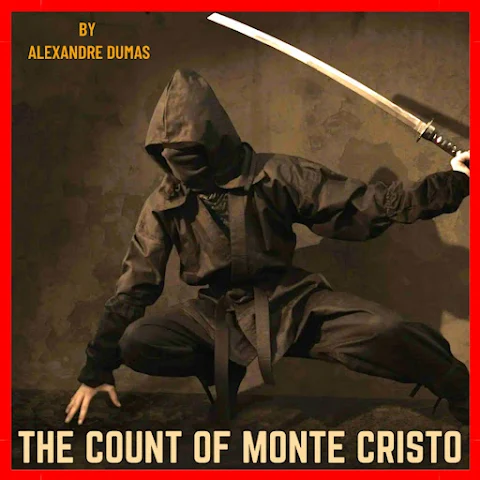The Most Dangerous Villain
Of all the Count's enemies, Gérard de Villefort is arguably the most dangerous. Why? Because he represents the law itself. When justice becomes corrupt, where can the innocent turn? Villefort's story is a chilling reminder of how power corrupts absolutely.
The Ambitious Prosecutor
When we first meet Villefort, he's a young, ambitious deputy prosecutor about to be married. He's intelligent, capable, and climbing the ladder of success. But beneath the respectable surface lurks a man willing to sacrifice anyone for his career.
Young Villefort:
- Age: 27 at Edmund's arrest
- Position: Deputy crown prosecutor
- Family: Son of Noirtier (Bonapartist)
- Ambition: Become prosecutor-general
- Methods: Ruthlessly practical
The Fatal Letter
Villefort's crime against Edmund is perhaps the most calculated. When he reads the letter Edmund was carrying, he realizes it implicates his own father. To protect his career, he makes a monstrous choice.
The Decision Moment:
- The Letter: From Napoleon to Noirtier (his father)
- The Dilemma: Release Edmund or protect himself
- The Choice: Condemns innocent Edmund
- The Method: Secret imprisonment without trial
- The Justification: "Reason of state"
Building a Career on Lies
After burying Edmund alive in the Château d'If, Villefort rises rapidly. Each promotion is built on the foundation of that original injustice. He becomes the very embodiment of legal corruption.
His Rise to Power:
- Royal Favor: Gains trust through "loyalty"
- Promotions: Becomes crown prosecutor
- Reputation: Known for harsh sentences
- Marriage: Strategic alliance for power
- Position: Eventually prosecutor-general
The Double Life
What makes Villefort fascinating is his complete compartmentalization. In public, he's the stern upholder of justice. In private, he's hiding terrible secrets that would destroy him.
His Hidden Crimes:
- The Affair: With Madame Danglars
- The Child: Illegitimate son (Benedetto)
- The Burial: Attempts to bury child alive
- The Cover-up: Years of deception
- The Fear: Constant terror of exposure
Family as Facade
Villefort's family life is a masterpiece of hypocrisy. He preaches morality while living in complete moral bankruptcy. His household becomes a reflection of his corrupted soul.
The Villefort Family:
- First Wife: Dies mysteriously
- Second Wife: Madame de Villefort (poisoner)
- Daughter: Valentine (from first marriage)
- Son: Édouard (spoiled and cruel)
- Father: Noirtier (paralyzed, knows his secrets)
The Count's Surgical Strike
Monte Cristo's revenge on Villefort is the most complex and devastating. He doesn't just expose Villefort - he makes him witness the destruction of everything he built.
The Revenge Strategy:
- Benedetto: Returns as false Andrea Cavalcanti
- The Engagement: To Danglars' daughter
- The Trial: Benedetto reveals parentage
- Family Destruction: Wife becomes serial killer
- Complete Ruin: Everything collapses at once
The Poisoner in the House
One of the most horrifying aspects of Villefort's story is how his corruption spreads. His second wife becomes a serial poisoner, killing for inheritance. His own evil creates more evil.
Madame de Villefort's Crimes:
- Motivation: Secure inheritance for son
- Victims: Multiple family members
- Method: Poison from Monte Cristo
- Escalation: Attempts to kill Valentine
- End: Poisons herself and son
The Paralyzed Father
Noirtier, Villefort's paralyzed father, serves as a living conscience. Unable to speak but fully aware, he knows all his son's crimes and serves as a constant reminder of truth.
Noirtier's Role:
- The Witness: Knows about Edmund
- The Protector: Saves Valentine
- The Judge: Silent condemnation
- The Irony: Powerless body, powerful presence
The Public Downfall
Villefort's exposure happens in the most public way possible - in his own courtroom. The man who sent Edmund to prison without trial is destroyed by the very legal system he corrupted.
The Courtroom Scene:
- Setting: Benedetto's trial for murder
- Revelation: "You are my father!"
- Evidence: Burial testimony revealed
- Reaction: Complete mental breakdown
- Justice: Destroyed by own corruption
The Price of Playing God
Villefort's fundamental sin is playing God with others' lives. He decides who lives free and who rots in prison based on his personal benefit, not justice.
His Abuse of Power:
- Arbitrary Justice: Law serves him, not truth
- No Mercy: Harsh to hide own guilt
- Manipulation: Uses position for personal gain
- Hypocrisy: Preaches what he violates
Madness: The Final Verdict
Unlike the other villains, Villefort doesn't die - he goes completely insane. Finding his wife and son dead, exposed as a criminal, his mind simply breaks. It's perhaps the most fitting punishment.
His Descent into Madness:
- Trigger: Finding wife and son poisoned
- Manifestation: Believes he's burying treasure
- Symbolism: Digging like he buried his child
- State: Complete break from reality
- Irony: The judge judged and found wanting
Modern Villeforts
Villefort's type is terrifyingly common today - the corrupt official who uses their position for personal gain while preaching justice. Every scandal involving judges, prosecutors, or politicians echoes his story.
Contemporary Parallels:
- Corrupt Prosecutors: Convicting innocents
- Political Cover-ups: Protecting the powerful
- Justice for Sale: Legal systems serving money
- False Convictions: Innocents imprisoned
- Abuse of Power: Law as personal weapon
The Ultimate Hypocrisy
What makes Villefort so despicable is his complete hypocrisy. He sends people to prison or death while committing worse crimes himself. He destroys families while preaching family values.
Lessons from the Prosecutor
Villefort's story teaches us crucial lessons about power and justice:
- Corruption spreads like poison
- Injustice creates more injustice
- Power without conscience is destructive
- Truth will eventually surface
- The law must serve justice, not individuals
Why His Punishment Fits
Madness is the perfect punishment for Villefort. He who lived by cold logic and calculation loses his reason. He who buried truth is condemned to dig forever in madness. Justice, poetic and terrible.


